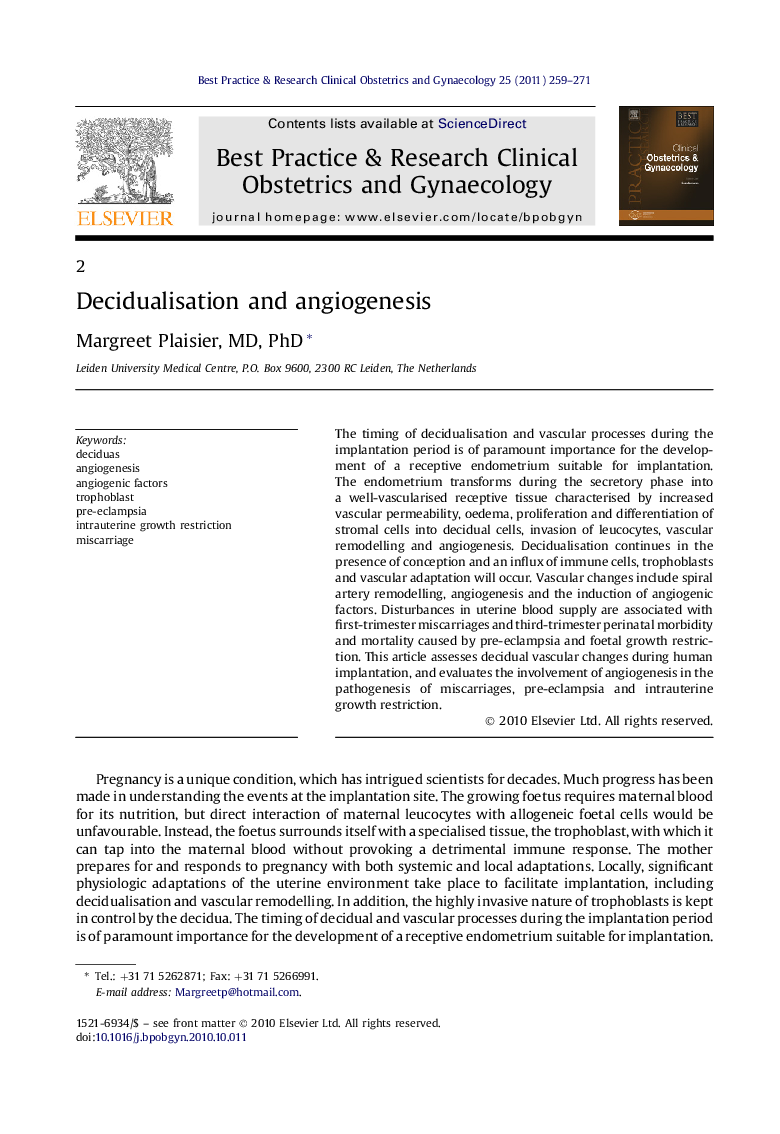| Article ID | Journal | Published Year | Pages | File Type |
|---|---|---|---|---|
| 6169275 | Best Practice & Research Clinical Obstetrics & Gynaecology | 2011 | 13 Pages |
The timing of decidualisation and vascular processes during the implantation period is of paramount importance for the development of a receptive endometrium suitable for implantation. The endometrium transforms during the secretory phase into a well-vascularised receptive tissue characterised by increased vascular permeability, oedema, proliferation and differentiation of stromal cells into decidual cells, invasion of leucocytes, vascular remodelling and angiogenesis. Decidualisation continues in the presence of conception and an influx of immune cells, trophoblasts and vascular adaptation will occur. Vascular changes include spiral artery remodelling, angiogenesis and the induction of angiogenic factors. Disturbances in uterine blood supply are associated with first-trimester miscarriages and third-trimester perinatal morbidity and mortality caused by pre-eclampsia and foetal growth restriction. This article assesses decidual vascular changes during human implantation, and evaluates the involvement of angiogenesis in the pathogenesis of miscarriages, pre-eclampsia and intrauterine growth restriction.
